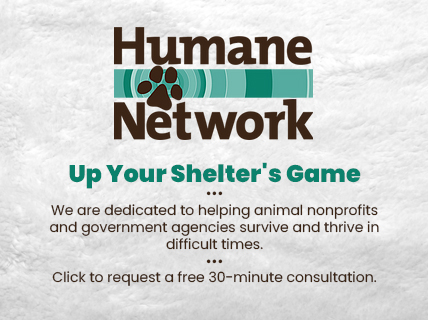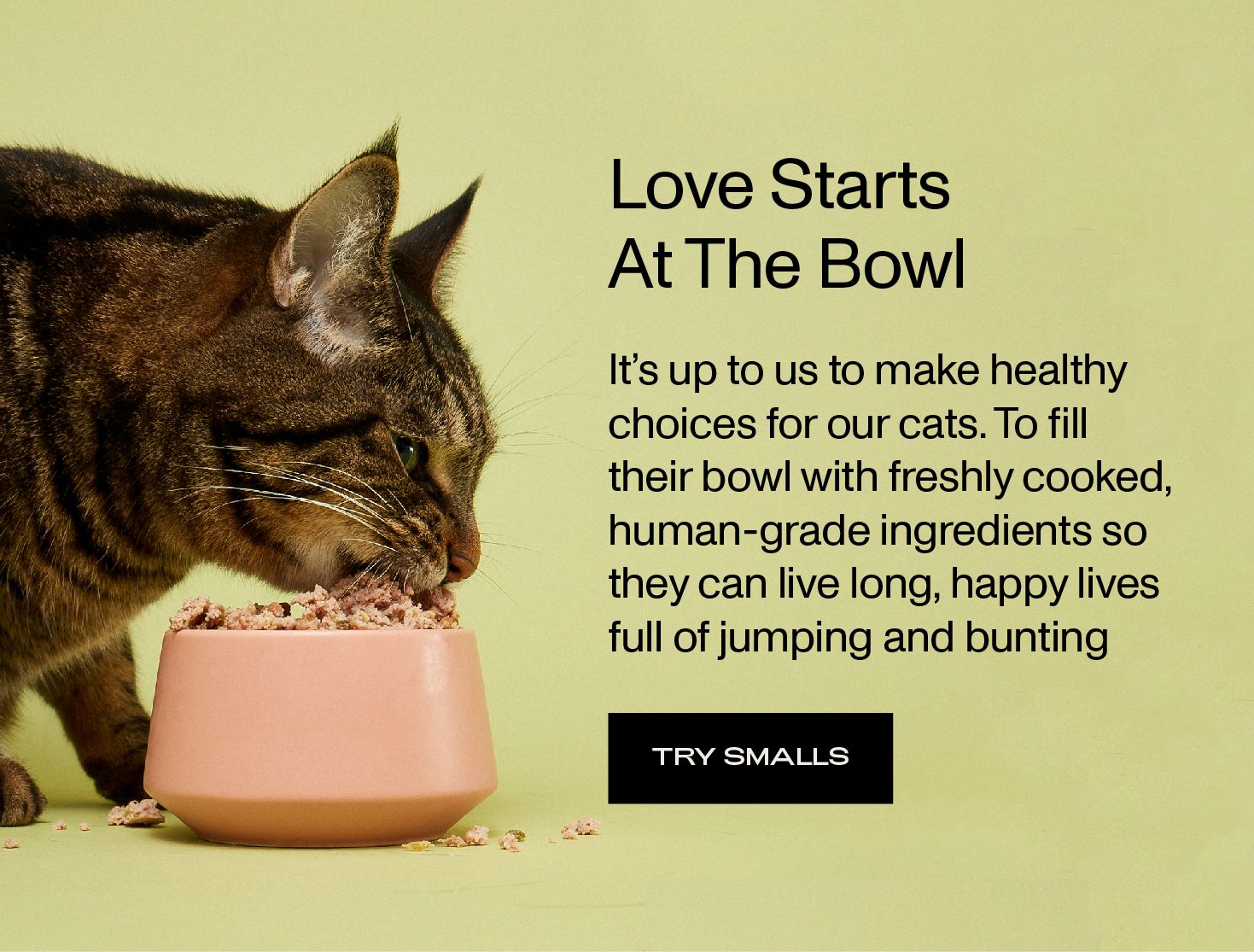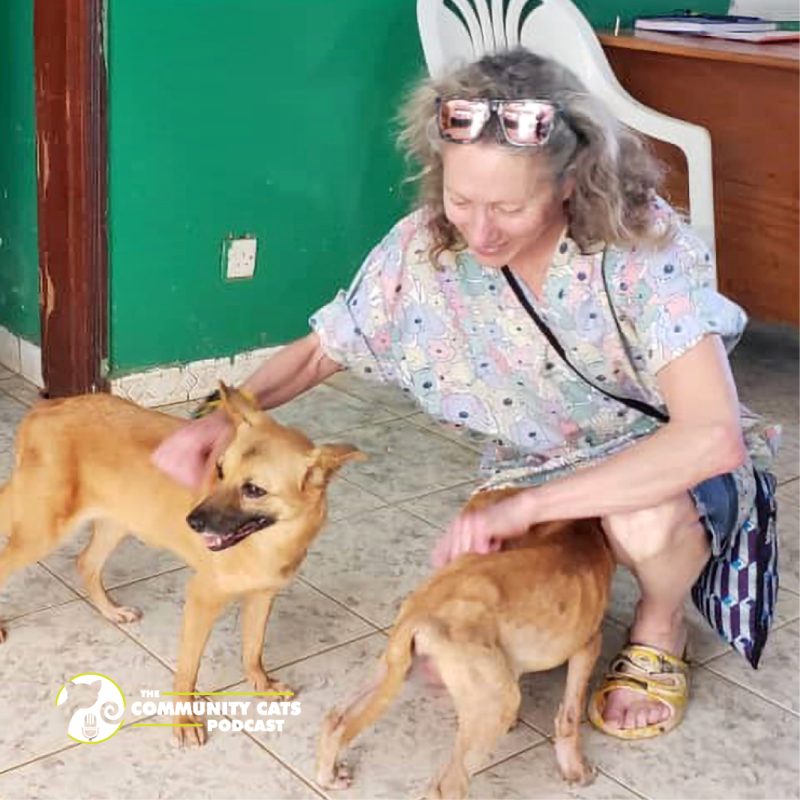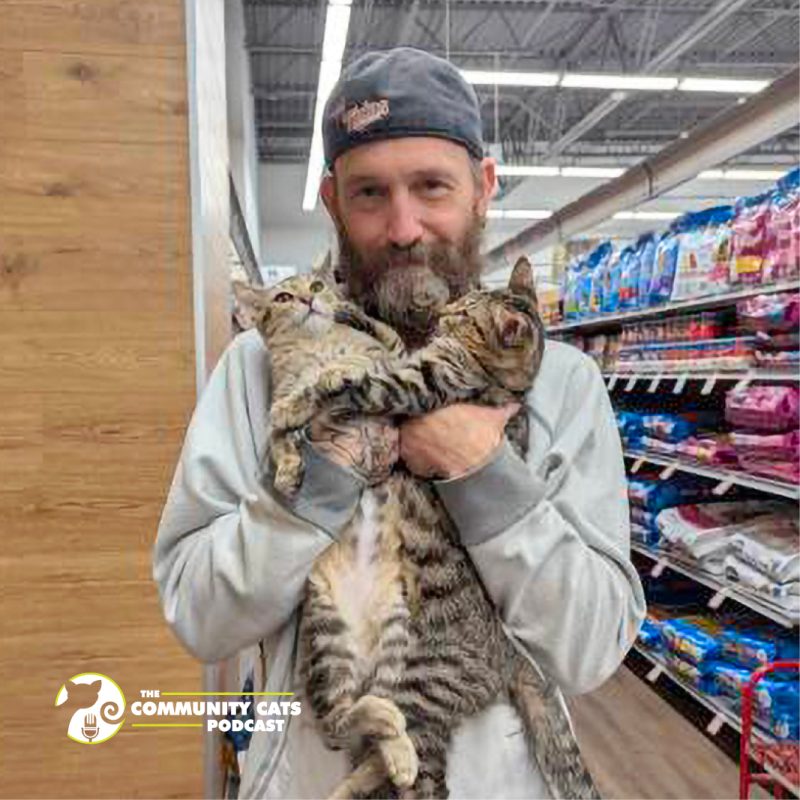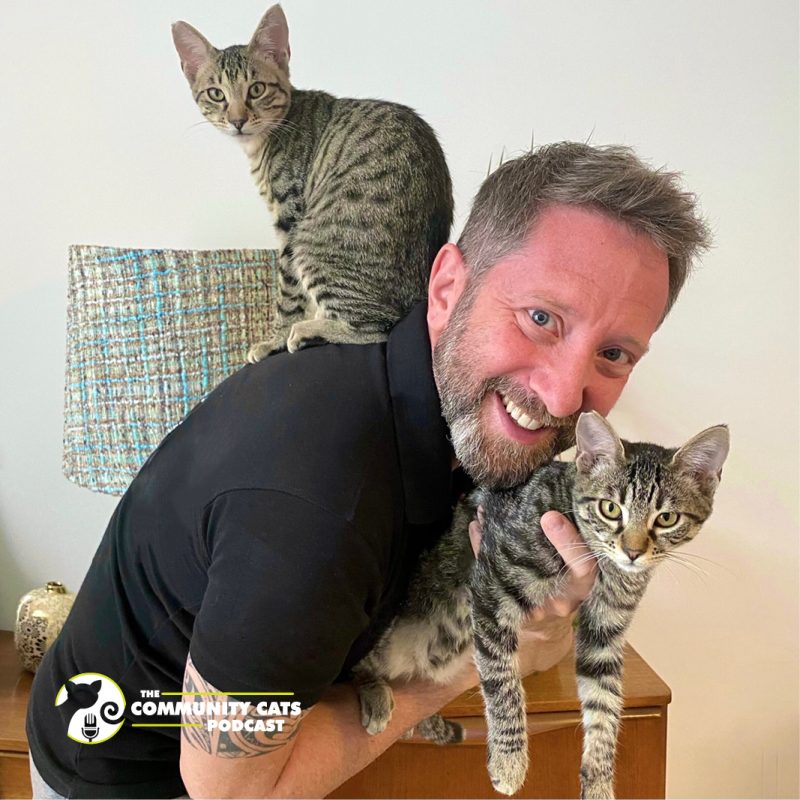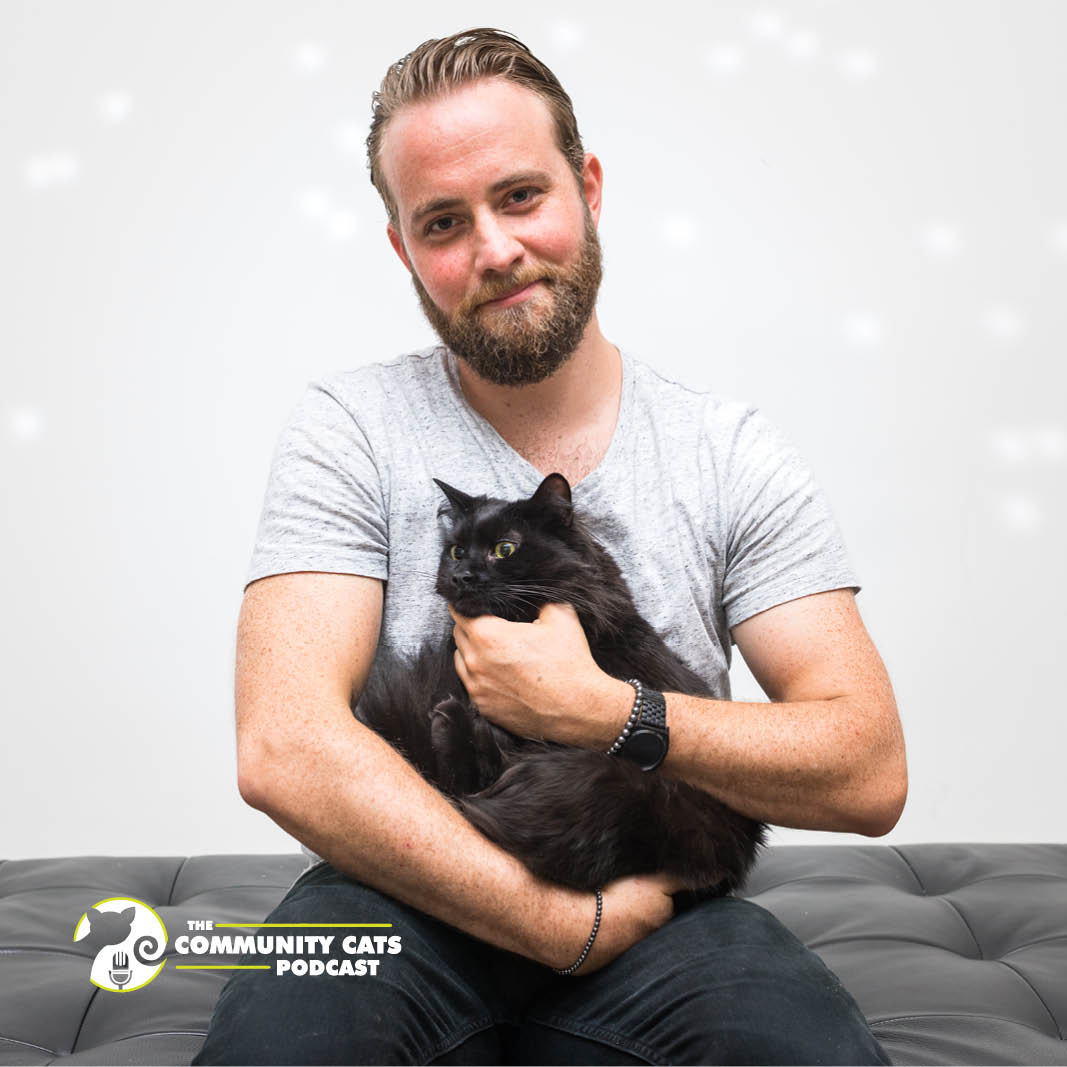
Aaron Hancox, Documentary Filmmaker of Running Wild: the Cats of Cornwall
January 4, 2022
A Community Cats Grants Program Update: Group 12 Saved the Day
January 13, 2022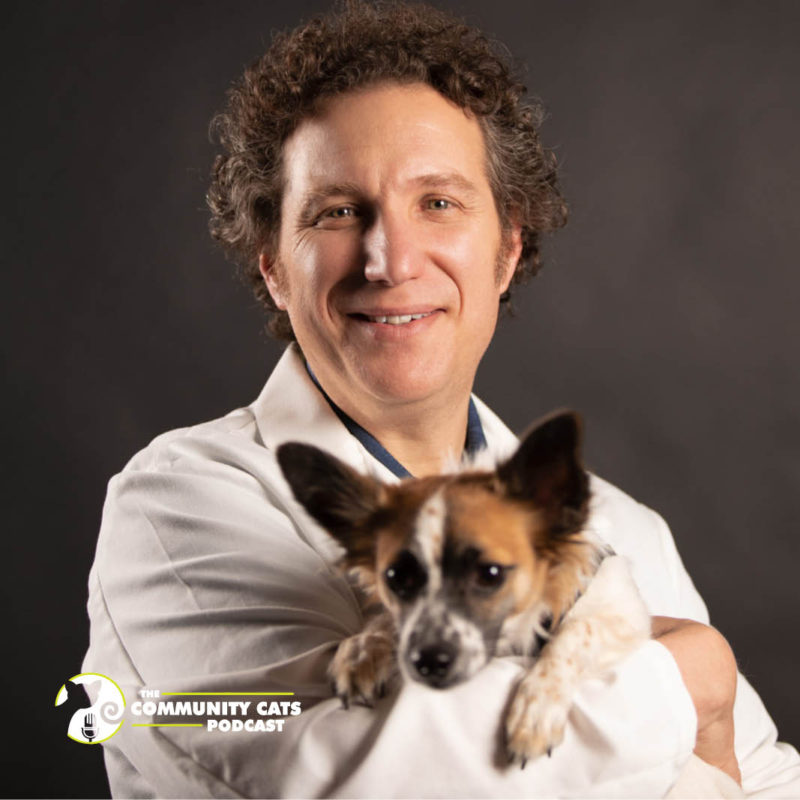
“Now there’s a lot more thought put into what the animal’s experience is.”
Listen to Episode #438 Now
This episode is sponsored in part by Humane Network, Doobert.com and Maddie’s Fund.
This week, Stacy checks in with the very accomplished Dr. Gray Richter. Dr. Richter is a certified veterinary acupuncturist and certified veterinary chiropractor. In 2007 and 2008, Dr. Richter and his Montclair Veterinary Hospital team received awards from the community, including Best Veterinarian in the East Bay from Oakland Magazine, East Bay Express, and KRON 4 TV. Dr. Richter’s professional interests are in emergency, general practice, alternative care medicine, and wildlife rescue. He is also the California Veterinary Medical Association’s Alameda county representative regarding animal disaster planning. Dr. Richter is now an international bestselling author of The Ultimate Pet Health Guide.
They discuss the shift in veterinary medicine away from treating cats as small dogs, and what might have prompted this enlightenment, including the Fear Free movement, more owner engagement, and the advantages it has for both veterinarian and patient. Dr. Richter also touches on the ongoing staffing shortages many veterinary clinics are experiencing and how important veterinary technicians are within the industry.
The conversation continues with a discussion about how western and alternative medicine can be integrated for remarkable outcomes and he even offers valuable tips on feline nutrition. Dr. Richter tells Stacy about the importance of diet for outdoor community cats and gives some details about supplements he’s created to help enhance the traditional diets we feed cats. As the conversation comes to a close, Dr. Richter shares his thoughts about end-of-life care for animals.
If you’d like more information about Dr. Richter’s supplements, you may visit ultimatepetnutrition.com and his book, The Ultimate Pet Health Guide, is available on Amazon. (It includes 50 recipes for dog and cat food you can make at home!) To learn more about integrated care, check out petvetexpert.com.
Read Episode #438 Now
CommunityCatsPodcast_Ep438_Richter_220111.mp3
Kristen Petrie [00:00:00]
You've tuned in to the Community Cats Podcast. Ready? Let's go.
Stacy LeBaron [00:00:08]
Welcome to the Community Cats Podcast, I am your host, Stacy LeBaron. I've been involved helping homeless cats for over 20 years with the Merrimack River Feline Rescue Society. The goal of this podcast is to expose you to amazing people who are improving the lives of cats and I hope these interviews will help you learn how can turn your passion for cats into action. And today we're speaking with Dr. Gary Richter. Dr. Richter is a graduate of the University of Florida with a BS in Animal Science and an MS in Veterinary Medical Science and a doctorate of Veterinary Medicine with honors. From 2002 to 2021, he was the owner, medical director of Montclair Veterinary Hospital in Oakland, California. He launched Holistic Veterinary Care in 2009, also in Oakland, California. Dr. Richter is certified in Veterinary, Acupuncture, as well as Veterinary Chiropractic and uses these therapies, along with his veterinary medical education, to achieve better outcomes for his patients. Dr. Richter’s animal hospitals have received more than 30 local and national awards, including best veterinary hospital, best veterinarian, best canine therapy facility, and best alternative medicine provider. Dr. Richter was named one of the top 10 veterinarians in the United States for 2012 and America's Favorite Veterinarian in 2015 by the American Veterinary Medical Foundation. Dr. Richter also received the Holistic Practitioner of the Year award from the American Holistic Veterinary Medical Association in 2019. Dr. Richter. I'd like to welcome you to the show.
Gary Richter [00:01:41]
Thank you. It's a pleasure to be here.
Stacy [00:01:43]
Yeah. Thank you for spending a little bit of time with us today before we dive into all that you've done over the last 20 plus years or so, you know, first you share with us: how did you become so passionate about cats?
Gary [00:01:55]
You know, when I was growing up, I was always somebody who was sort of, you know, sort of gravitated towards animals. If you put me in a room full of people and there's a dog or a cat in the room, even to this day, I will still go play with the dog and the cat. So there's always been that that you know, that attraction if you will and you know, as I got older and sort of learned more about cats and cat behavior and physiology. I mean, they're just fascinating creatures, you know, as a professor of mine was very fond of saying cats are not small dogs. They most certainly are not small dogs, neither physiologically nor sort of, you know, in their mental state and I just think they're just fascinating amazing creatures.
Stacy [00:02:37]
So I really like to take that statement talking about cats not being small dogs because that's been a bee in my bonnet with regards to in the rescue world. The nonprofit space, we have a lot of programs for dogs and we think, oh, well, we'll just scale it down and we can use those programs for our cats. So, in a veterinary practice, how have things changed over the last 20 years in how you've approached treating cats in the practice versus maybe the way things were 20 years ago?
Gary [00:03:05]
You know, maybe one of the biggest things that has happened is there is a movement in the veterinary profession these days, it's called fear free. And it's a whole system of approaching animals in a very, very different way than, than what we used to. You know, it used to be just kind of manhandle them to get to get what you need done done and call it good. Now it's you know, there's a lot more thought put into what the what the animal’s experience is and admittedly part of this is for the betterment of the animal and part of this is a self preservation strategy for veterinary professionals because, you know, if that cat has a bad time at the veterinarian today, the next time they come in, they're going to remember and they're not going to let you do anything. So, I mean, you know, it's kind of a win-win in that situation, but I'm going to think that, you know, that's probably one of the biggest things is we just we just approach cats very differently than we used to, you know, with a lot a lot more respect for them and their worldview.
Stacy [00:04:17]
So I've always heard the statistics, it's about 75% of clients have dogs and 25% have cats. Are you seeing a greater demand for veterinary care for cats?
Gary [00:04:27]
You know, it's an interesting question because I think the percentage of people that own cats is greater than the percentage of cats versus dogs that you see in a veterinary hospital. And you know, I mean, I think there's a lot of reasons for that but probably the biggest reason is that cats are extremely good at putting out that I'm self-sufficient, I'm fine, I don't need anything vibe and as such a lot of people just look at them and go, “They're fine, I don't need to do anything.” And if I'm being honest, a lot of times they are. But you know, I mean the thing, the thing about cats this is true for dogs as well but I think it's especially true for cats is cats will not only not tell you when they're not feeling well, but they will go out of their way to hide it. So the problem becomes is by the time your kitty looks sick, they’ve probably actually been sick for a long time. And you know, one of the I think one of the great challenges of veterinary medicine is almost everything that we diagnose in veterinary medicine, we diagnose too late: end-stage kidney failure, advanced cancer, you know, whatever it may be, because that because the cat has done such a good job of hiding it that by the time they're in obvious distress, they are kind of at the end of the disease pathway and that's a real challenge for us. And, you know, to your question, I don't know that we're definitively seeing more cats come in than we used to versus dogs. I think most veterinarians I know are more busy than we have ever been since COVID and I think that that is both cats and dogs equally, but I think that the people that do bring their cats in are definitely invested in comprehensive care. It's not a “I just want the vaccine and I want to get out of here,” it's really more of a, ”Can we talk about what should I be feeding him? You know, what kind of things should I be looking for? How do I keep them healthy for as long as possible?”
Stacy [00:06:30]
You touched upon a topic that is a very hot topic in the animal welfare space, which is how busy your practices have been, how busy all veterinarians seem to be. There are emergency clinics that go on diversion because they're just so packed, the 8-hour, 12-hour waits. Many practices are not taking on new clients. Are you facing those challenges? You’re in California, so I'm on the East Coast, this is what I'm hearing primarily over here on the East Coast and you're feeling the same thing in California?
Gary [00:07:04]
Yeah, you know, I mean the same thing is definitely happening out here in a broader sense. General practices are booked out for weeks, you know, the emergency clinic 6-, 8-, 10-hour waits. It's nuts. You know, my practice these days is a little bit, a little bit different than most practices in the sense that were very, we're very dedicated to integrative care. So, a lot of what we do is both preventive care and sort of adjunctive care for animals, say that have had surgery or they're going through chemotherapy or something to that effect. So we don't do quite as much sort of acute issues, sick animals in the sense of like my cats not eating. So that's not as much of what we do, so we're not necessarily sort of seeing that same issue that a lot of other veterinarians are seeing. But yeah, I mean that that is going on everywhere and it's a legitimate issue both in the veterinary world and from the perspective of a pet owner.
Stacy [00:07:57]
Yeah, and there are lots of questions around is it a veterinarian technician shortage or are there issues at play, are there some practices that could help support freeing up more time, so veterinarians are not are doing veterinary work, but not necessarily doing technician work and some of those things. So there are lots of conversations out there and hopefully some of those maybe systems will become more efficient, but at the end of the day, you know, we seem to have a shortage.
Gary [00:08:27]
No, I would agree with you and you know, the veterinary profession is having a bit of a crisis right now as it pertains to staff, in so much as it is getting harder and harder to find qualified competent people that can do veterinary technician, veterinary nursing jobs because, if I'm being honest, the profession doesn't pay that well. And, you know, these people, these very intelligent, very hard working people can go out and get jobs for 50% more than they're making in a veterinary hospital and frequently have easier hours. So how do you keep people like that? And, you know, the problem is the way you solve that as a practice owner is you dramatically increase your prices to be able to pay your staff more but that's not necessarily received very well by pet owners. So, you know, we're kind of in a catch-22 in that regards.
Stacy [00:09:21]
Yeah, good point. You know, it looked like in here in about 2009, you launched a holistic veterinary care practice. You know, for those of us or our listeners who aren't really 100% sure - you use the word integrative care, holistic veterinary care - go into a little bit more detail. Specifically, how is that different than our traditional veterinarian?
Gary [00:09:43]
Sure, that's a great question and a lot of terms get thrown around that I think are a little bit confusing to people so and holistic vet care, we've practiced both conventional Western medicine, so the kind of stuff - bloodwork, vaccines, surgery, what have you, that sort of thing, but we also practice what might be called either holistic or complementary and alternative care, there's a lot of different names for it, but effectively what that is is treatment modalities that are not specifically Western medicine, so acupuncture, chiropractic, herbal therapy, physical therapy, things like hyperbaric oxygen ozone therapy, what have you. So we offer those services as well and really the magic and all of it is in integrating it all together and really just using the best of both worlds to achieve a better outcome. You know, I mean, I learned a long time ago that there are a lot of things in, in, you know, in medicine that I did not learn about in vet school and just because I didn't learn about them in vet school, doesn't mean that they're not legit and it's just a function of me doing my research to see what, what is legitimate, what is effective and adding that in because in many ways, a lot of these holistic or alternative therapies can achieve outcomes that Western medicine can't.
--Start mid-roll advertising-- [00:11:05]
We interrupt this podcast for a quick trivia question. Where's the single place with answers to all of your animal welfare questions? Yes, even the one that kept you awake until 2:00 in the morning. Anyone? Anyone? Bueller? It's Maddie's Pet Forum. Maddie's Pet Forum is the only dedicated forum for our industry where you can find answers from colleagues fast and free. Stop doom scrolling and join today. Visit forum.maddiesfund.org/cats.
[00:11:36]
Could your animal welfare organization use a tune-up? Humane Network can help. You can get a free 30-minute consultation to talk through your challenges and get ideas on how your organization can be more successful with less stress from board development and fundraising to strategic planning and operations. Humane Network has got you covered whether you were a large or small nonprofit or government. It's a live and thriving program led by a certified animal behavior consultant. Features specially designed training for shelter and clinic staff on enrichment, stress reduction, safe, animal handling, and behavior modification. With Humane Network, you receive individualized advice and support customized to meet your organization's unique needs, and Humane Network can lighten your load by taking on fundraising communications and other tasks you struggle with. Contact Humane Network today for a free 30-minute consultation. Visit humanenetwork.org. That's humanenetwork.org.
[00:12:31]
A simple picture of an animal and foster or needing adoption just doesn't cut it; adopters want to see video of the animal in action showing off their personality but shelter software doesn't let you get video back from fosters or staff easily. They can't text it because video is just too big and posting to YouTube means you have to give them access. If only there was a way for you to get video back from anyone that you can use in your organization. Luckily the team at Doobert has solved this problem with their RescueTUBE module. Now you simply create a bucket and give that code to any of your staff, volunteers, or fosters to type into the Doobert mobile app. They can easily upload videos up to 10 minutes that you can easily download and use in your adoption efforts. Organizations across the country are using Doobert’s RescueTUBE to capture video of foster animals, adoption, events, playtime, and behavior testing. ACOs are even using it to document cases in the field so they have video evidence. Check out RescueTUBE today at www.doobert.com where they make animal rescue simple.
--End mid-roll advertising-- [00:13:34]
Stacy [00:13:35]
So, in terms of the type of cases that you deal with, I had a cat that had must have been hit by a car that I had adopted at age 10 and she always was limping and so I did acupuncture with her to try and alleviate some of the pain that she was dealing with. So I would assume your deal with muscle and joint issues but are there other typical cases that come to your practice?
Gary [00:13:58]
Yeah, you know, the practice kind of runs the gamut a little bit from the standpoint of we see a lot of people now that come in for preventive care, young and or healthy animals that are coming in to talk about nutrition, how to keep my pet healthy for as long as possible, that sort of thing. We also see, you know, animals that that for one reason or another are sick or they've been injured. A lot of times that's happening in conjunction with their receiving Western care, but they need something else or perhaps they've had surgery and they need physical therapy. And then of course, we also see a lot of geriatrics, so arthritis, joint issues, cancer, various other types of metabolic disease, kidney failure, what have you. So, you know, and interestingly it's the ongoing chronic disease processes that often are the ones that you get the most impressive results from with integrative and holistic care because if you look at conventional medicine, you know, conventional medicine is very, very good at acute care, treating an infection, treating a broken bone, you know, that kind of thing. What it's not really good at is chronic stuff: chronic pain, chronic gastrointestinal issues, allergies. Western medicine struggles with that but that as fate would have it is exactly where holistic medicine works out great hence the case for Integrative medicine.
Stacy [00:15:26]
Yeah. It makes sense. I ran a webinar about a week ago or so and I took a poll. I love polls in my webinars for folks that don't know that. I love doing poles and this was for a group of folks that it was called Colony Caretaking: Tips and Tricks, and it was a free webinar. So folks are getting their colonies ready, you know, for the winter season and that kind of thing. And I ask them what the, the age of the cats that you're taking care of, and 30% of the cats that are being taken care of were over the age of 10 in these colonies, and in my mind, you know, going through winter outside 10 or plus that's a little chilly. And so there are some things you know, and I think also about dental issues like nutrition with dental issues. Do you have any thoughts or ideas or tips for our colony caretakers, what sort of nutritional support we can do to help our older outdoor kitties?
Gary [00:16:21]
Sure. So needless to say, I mean, the nutritional aspect of things is a little bit more tricky when we're talking about, you know, outdoor cats. My suggestion to people is always to feed as close to a fresh whole food diet as you can. Again with the understanding that that may not be possible for these outdoor cats but while putting fresh food out may be problematic, I mean, if it's within somebody sort of budget to do so you could put freeze-dried food out for them, that would work out very nicely or alternatively, if the only thing that's really going to work is say like a high quality kibble or canned food, then I think what you do in that regards is you supplement on top of that to try and up-level their nutrition a little bit. So, perfect example is couple of years ago, I was kind of struggling with this very question of, how do I improve the nutrition of dogs and cats that are not going to be eating fresh whole food diets for whatever reason, you know, whatever reason, the owner can't make that happen. There's got to be a way to improve what's going on with them and what that ultimately led to was me developing a supplement called Nutra Thrive; there's a dog version and a cat version. But really the purpose of Nutra Thrive was up-level the nutrition of pets that are on shall we say suboptimal food and it turned out that it worked very well a lot of these animals do so much better. It has since turned out that it actually works very well for animals that are also eating really great diets like fresh food diets, raw food diets, but nonetheless, I think that's a good way to go, as you know, you feed the best possible food you can, fresh if possible, but it's always a good idea, particularly for the outdoor ones because, you know, their lives are challenging sometimes, to give them a little bit of something extra from a supplement standpoint that can help them get by.
Stacy [00:18:16]
That's great. Thank you for sharing that information. And I know the other thing that has become very challenging too, which I always say it's kind of a great problem to have but, you know, as these feral or community cat colonies age and age out, at the end of the time, sometimes the caretakers have a hard time or have a challenging time, they have to decide, you know, do I bring the kitty in for hospice care basically, or do I let mother nature take its course, you know, out in the outdoors and you know, my experience has been 50% one way and 50% the other way. So I do not have statistical leanings one way or the other but I feel like that is a pretty significant challenge and I don't know, based on the cases that you've seen just in terms of cats in general, you know, what would be some of the things that you would look out for and say, you know, “Hey, maybe this cat should be brought in”?
Gary [00:19:08]
Sure. So again, I mean, definitely adds a layer of complexity when we're talking about outdoor cats compared to like somebody's pet. But, you know, I mean, I think, I think that the, you know, one of the things that I often remind people of is the very, very end of life is almost always extremely unpleasant for the person or the animal, that is dying. It's not like they just lay down and go to sleep and don't wake up; sometimes that happens but that's the exception rather than the rule. And, you know, so I would always urge people, I mean, this is just a personal thing for me that when it's getting to that point that you seriously consider euthanizing them. And you know, I, you know, what I what I often tell people is the last best favor we can do for them is give them a soft landing, you know, if it's only going in that one direction, there is no need for them to be scared and suffering for hours or days at the end. So, you know, if they're having breathing problems, if they're not eating, if they're precipitously losing weight, if anything else looks significantly wrong, you know, I would urge people to go ahead and bring them in and, if necessary, make some decisions. Like I say, it's you know, it's the favor that you and I will probably never get, but it is one that we can that we can offer them. So, you know, it's just my personal thought on that
Stacy [00:20:37]
And I think that's a very, very good one and I think very important. So Dr. Richter, you have been out and about and you are, you know, an authority out there in this space. When we were talking before we hit the recording button, you mentioned you have written a book. Can you tell us a little bit about that?
Gary [00:20:54]
Sure. A number of years ago, I sat down and started writing and what started out as a book about nutrition kind of really turned into a much broader thing beyond nutrition alone. It turned into kind of a really comprehensive discussion about integrative care, actual medical conditions, so arthritis, kidney disease, cancer, diabetes, what have you, and really it was me going through effectively explaining in the book what I would tell you if you and I were sitting in an exam room: what's the diagnosis, you know, what does that actually mean, how is this approach from a Western medical perspective, how is this approach from an alternative medicine perspective, and then how do we integrate that all together to get the best outcome. And then I went ahead and put information in there about vaccinations and about sort of general wellness care. There are 50 recipes for homemade diets, 25 for dogs and 25 for cats, so that way if people want to actually make fresh food for their kitties at home, they have resources that they can do that. Really, its purpose was to give people all of the resources that I would give them if they came into my office because, clearly, there's a very finite limit to the number of people that come and go for my office and, you know, if you don't live near here, then that's probably not an option, so I wanted to make sure that people that people had, that kind of opportunity. The book is on Amazon, The Ultimate Pet Health Guide, you can get it as a physical book, you can get it as an e-book, So there's definitely options out there for it.
Stacy [00:22:36]
One more question, a follow-up question with regards to some of the, you know, disease and situations you've seen with cats. We have a huge following of folks that are very supportive of feline leukemia positive cats, in terms of, adopting them out, quality of life, and all that kind of stuff. And I didn't know if you had experience with feline leukemia positive cats or any advice.
Gary [00:22:59]
Yeah. I mean, I've seen very, I've seen plenty of FELV and FIV positive kitties, and in my experience, you know, if you feed them right, and you treat them right, a lot of these cats will live very long healthy lives. Sometimes the disease will catch up with them and sometimes not, but a lot of it is really about providing their body with everything that it needs to make sure that their immune system is supported and needless to say, you know, when we're talking about a communicable disease, like FELV or FIB, those cats do need to be brought inside. You know, we certainly don't want them running around the neighborhood potentially infecting other cats, so they need, they do need to become indoor cats and I know that that's not always the easiest thing to do but it is the most responsible thing to do.
Stacy [00:23:55]
Yeah, and certainly there's a lot more research happening with regards to feline leukemia testing and how you know you can be reverting one way or another and there's various different charts and different studies. So, you know, all that information is out there. Our Feline Leukemia Day, we had a presentation on various studies that have done about the disease and whether cats do revert back to negative or not over time. And so I think, you know, we're always out there, we're trying to learn new things and understand, and certainly at the end of the day, what we want is to have the healthiest cats possible in our homes, as well as in our communities. I think that's our ultimate goal, for sure
Gary [00:24:37]
Agreed.
Stacy [00:24:38]
Regardless of what your income level is, which is why you created this book and why you wrote this because I get calls from people who you may have a diabetic cat and they can't afford the insulin and they can't, you know, afford the special diet food, so anyway, so those are some of the challenges that we face at an income level and it again sounds like you are addressing that in that book. Dr. Richter, if folks are interested in your supplements or in the book, you know, how would they find out more about those products?
Gary [00:25:08]
Sure. So as far as the supplements go, the website that they would look for is ultimatepetnutrition.com. That has all the supplements on there. It's still a few months away, but we are going to be coming out with a freeze dried raw food for kitties. There is a dog one out there already on Ultimate Pet Nutrition. The kitty one we're just sort of finalizing the formula and the packaging and all of the logistics that come with that, but that will be coming soon. As I mentioned, the book is available on Amazon, The Ultimate Pet Health Guide, and then, you know, if people want to learn more about just sort of Integrative care in general, they can visit one of my websites petvetexpert.com; that has a lot of resources and information for people about integrative care and how to take the best care of your pets.
Stacy [00:25:57]
Fantastic. And we'll get all those links in the show notes. So we'll make sure that everybody has all of those places to go. Is there anything else Dr. Richter you'd like to share with our listeners today?
Gary [00:26:07]
You know, I think I would I would leave it with a thank you for all of those people out there that are taking care of these outdoor kitties, these community cats. You know, we work very closely with somebody here in Oakland, they call him the cat man, who does just that, you know, it's a it's a real blessing that these kitties have somebody looking after them, especially in urban settings, it can get pretty rough out there. So, you know, for all of you guys out there that are taking care of these kitties, thank you. I truly appreciate it.
Stacy [00:26:38]
Well, thank you so much for being a guest on our show and I hope we’ll have you on again in the future.
Gary [00:26:42]
Sounds great. I look forward to it.
Stacy [00:26:44]
That's it for this week. Please head over to Apple Podcasts and leave a review. We love to hear what you think and a five-star review really helps others find the show. You can also join the conversation with listeners, cat caretakers, and me on Facebook and Instagram and don't forget to hit follow or subscribe on Spotify, Apple Podcast, Google Podcast, YouTube, Stitcher, or wherever you listen to podcasts, so you don't miss a single show. Thanks for listening and thank you for everything that you do to help create a safe and healthy world for cats.

